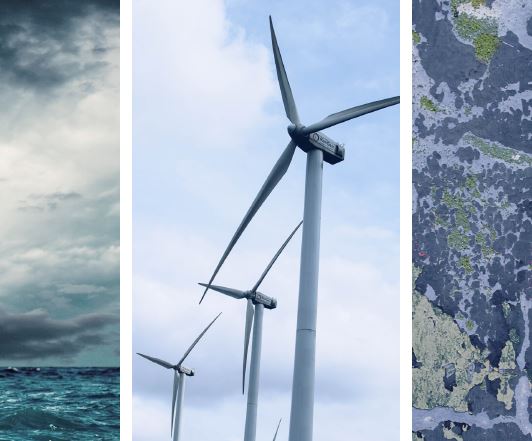Machine learning applied to satellite and weather forecast data
Weatherquest Ltd provide operational weather forecasting, analysis and consultancy services to clients in the food, water, energy, transport and media sectors.
This project investigated the potential of AI techniques, such as machine learning, to improve the forecasting services that could be offered to customers. Post-processing of weather data using machine learning enabled the company to refine and develop the current computer weather models.

The Challenge
Weatherquest wanted to find out the extent to which machine learning techniques could add value to raw computer model weather forecasts through post-processing of weather data. They were specifically interested in:
- applying machine learning techniques to the production of short-range solar radiation forecasts (for the renewable energy sector), based on satellite solar radiation data
- testing the extent to which machine learning approaches can add value, through post-processing, to raw computer model weather/wave forecasts for ports and offshore wind farms
- quantifying the performance of machine learning methods and undertaking benchmarking against existing company methods and systems.
The Approach
Machine learning is a particular area of expertise in the UEA Computing Sciences department. With EIRA funding for an Innovation Voucher, Weatherquest were given the opportunity to bring someone with relevant expertise into their organisation to investigate the benefits of machine learning on their forecasting systems.
MSc Computing student, Mary Symons, was completing her dissertation on machine learning, using weather data as part of an integrated big dataset, to develop deep learning neural network models to predict train delays – a subtask of a funded project, under the supervision of Dr Wenjia Wang. Mary also had previous meteorological experience through her first degree in Meteorology and Oceanography.
As part of the EIRA-funded project, Mary joined Weatherquest on a 3-month internship to apply machine learning techniques to the company’s forecasting data.



The Outcome
Mary played a key role in helping Weatherquest develop and refine a weather and wave forecast validation system which helps with both their own internal quality process and in the marketing and sales of their services in the wind energy sector.
Mary’s work made a key contribution to Weatherquest securing a new contract with EDP Renewables for the construction of the Moray East offshore windfarm, commencing 1st April 2019.
“My internship with WeatherQuest provided an excellent opportunity to combine my academic background in Meteorology, with my more practical computing skills. The project I worked on allowed me to, under guidance, independently develop a solution to a real business need, enabling me to develop my skills while giving a positive contribution to the company. Having taking part in this project which involved investigating the use of machine learning to improve business processes, it gave me the confidence and evidence to describe my knowledge with plenty of examples of my work during interviews. This certainly helped me secure a graduate position as a Software Developer in a well-known engineering company.” – Mary Symons
Next Steps
The learning from this project will inform future grant funding applications. The intern working on the project, Mary Symons, also secured a position on the WS Atkins graduate training programme that began in Summer 2019. Weatherquest have also recently been expanding the support provided to EDPR by advising on turbine blade erosion caused by rain droplets of different sizes.
